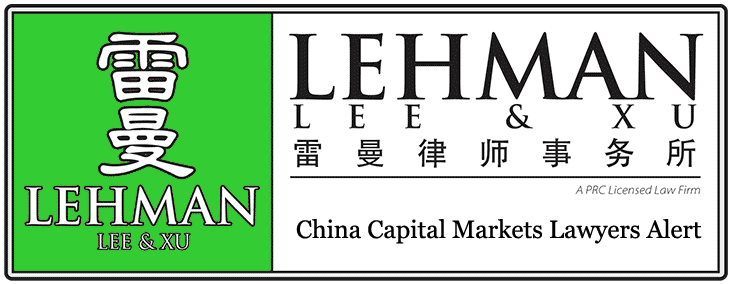The launch of the Shanghai-Hong Kong Stock Connect — a great reform of China’s capital market — on Nov. 17 was an historic moment.
The launch opens the door for Chinese capital to go abroad, and indicates that Chinese investors can play in the international market and global investors can enter the Chinese market through legal channels to share the benefits of China’s economic growth. The opening-up will invite global investment philosophy, rules and regulations into China’s capital market, bringing subversive effects on the Chinese market and disrupting the vested interests and game rules of the international market. But it will take a long time to see such benefits.
After the official launch, neither of the Hong Kong and Shanghai stock markets opened higher as expected. On the contrary, both went through a quiet and stable period. The Northbound trading, or 'Shanghai stock,' outperformed the trading on the Southbound link, or 'Hong Kong stock,' but no flurry of market activity was seen in the two cities.
The pilot scheme comes with limitations on the total renminbi value of shares that can be traded through the exchanges. For the Northbound link, there is an aggregate cap of 300 billion yuan and a 13 billion yuan daily cap. At 1:57 p.m. on Nov. 17, Northbound trading reached the daily cap and was forced to temporarily stop new buying , but no limitations were set on selling. Southbound trading, as of 4:00 p.m., was 8.732 billion yuan short of the daily cap, accounting for 83 percent of the total value of shares (about 10.5 billion yuan).
The stock indexes fell in both markets. The Hang Seng Index fell 290 points, or 1.21 percent, with a turnover of 83 billion yuan — less than expected; the Shanghai Composite Index (SCI) closed with a 0.2 percent fall. The share prices of the Hong Kong Stock Exchange — widely believed to be the direct beneficiary of the stock connect program — dropped by more than four percent.
Will the stocks falling and listless trading on the first day of the stock connect dampen the faith of the market? Will investors lose confidence in the program? Will the government think less of the reform? The answer to all these questions is: No!
Actually, since April, after the program of HK-SH stock connect was proposed, stock markets in Hong Kong and on the mainland have underwent waves of market hype. For example, the SCI rose by more than 17 percent during this period, and the stock connect concept shares soared on the Hong Kong market. So it is normal to see a downward adjustment of stock prices after the official launch of the stock connect; otherwise, problems will arise. The adjustment provides an opportunity for people to think rationally of the stock connect.
The higher activity of the Northbound link compared with the Southbound link, it is largely attributable to the differences between the two markets in terms of investors, trading rules, and enthusiasm towards the stock connect.
The Hong Kong market mainly consists of institutional investors who must have done detailed studies on the Chinese securities market before the launch of the stock connect. Therefore, they were better prepared to enter the mainland market once the pilot program is launched, so as to gain advantages in the future. Besides, the trading rules are favorable for Hong Kong investors.
In the mainland market, individuals account for more than 80 percent of all market investors. And since China’s stock market has been isolated for a long time, it varies widely from the global market in terms of trading rules. This has led to a series of consequences: the domestic securities market is still immature; investors are ignorant of the global market and have weak risk-awareness; a conformist mentality prevails among the investors. Under these circumstances, when the stock connect opens the international market for China, it is natural for the domestic investors to feel overwhelmed and not risk entering the completely new and unfamiliar market.
China’s domestic investors have raised their risk-awareness since the 2008 global financial crisis and the subsequent SCI slump from 6124 points to 1649 points. And struck by the long-term sluggish nature of the stock market, these investors are likely to go to the other extreme: they are terrified to invest in the stock market and overcautious in face of a new and unfamiliar market. So it is reasonable for them to adopt a wait-and-see approach to the stock connect.
But as well as providing a testing field for domestic investors to go overseas, the launch of HK-SH stock gives them a chance to learn how the global stock market operates. With the first-hand experience brought by the stock connect, the current situation for Chinese investors will gradually improve. It is reasonable to conclude that the low investment Southbound shows that the Chinese investors have become more rational, which lays a foundation for sustained and steady growth of the stock connect in the future.
In other words, the biggest success of the Honk Kong-Shanghai stock connect lies in its official launch and normal operation thereafter. It is a milestone in the development and prosperity of the stock markets in Hong Kong and on the mainland. If the stock connect operates well in the future and realizes the complete openness for capital flow, then it will become the second-largest securities market in the world. At that time, the influence of its launch will be immeasurable. The interaction of the Hong Kong market with more than 7 million people and the mainland market with 1.4 billion people has great potential and vitality. In this case, how could the stock markets not prosper?
Source: http://www.qiewo.com/html/20141119/125673.html |


